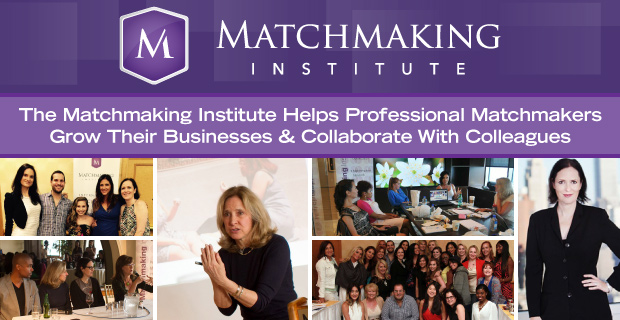Learn how to tell apart the best set-up services from the dating duds
By Kristi Dosh
Read more: How to Find the Best Matchmakers – Qualities of Good Matchmaking Services – Woman’s Day If you’re short on time, want personalized help or are just looking to try a new way to find a mate, a matchmaker can be a great option. But even though these professionals insert themselves into the most personal parts of singles’ lives, there’s no industry regulator outside of general business-rating entities like the Better Business Bureau. To help you find the best matchmaker for you, we’ve asked pros and women who’ve hired them to reveal 10 things a matchmaker might not admit that anyone considering using one needs to know.
1. Anyone can be a matchmaker. While matchmakers can get certified, they don’t have to. Lisa Clampitt, who owns the New York City–based matchmaking service Club VIP Life and the Matchmaking Institute certification program, says the benefit of hiring a matchmaker she certifies is that in addition to the training they receive there’s also a formal process for clients to submit complaints, which can result in a matchmaker losing her certification. Still, there are many uncertified matchmakers who’ve successfully paired people. Brooke Carsner of Intuitive Matchmaking in Portland, OR, encourages potential clients to ask matchmakers “what qualities they bring into matchmaking that benefits them as a matchmaker.”
2. I’ve been part of a failed matchmaking business. It’s been a few years since Barbara, a 54-year-old from San Diego, engaged the matchmaking service with whom she had a bad experience. An online search of the agency turned up multiple negative reviews and the fact that the business shut down, but more digging reveals that the same matchmakers opened a new agency with a different name. Again, because of the largely unregulated nature of matchmaking it can be tough to tell a reputable matchmaker from one who’s less so. So ask about the origin of the agency you’re considering and where matchmakers have previously worked. Google the specific matchmakers too.
3. You’re my first client. Everyone starts somewhere, right? Signing on with a newer matchmaker has benefits. Matchmakers with a smaller client base “often work ten times harder than someone managing a bunch of clients,” says Clampitt. Carsner suggests asking a newer matchmaker for references from previous business relationships. Then, ask those references about whether the person delivered on her promises and met or exceeded expectations.
4. I don’t have any references. Speaking of references, beware of the matchmaker who won’t provide any. Rachel, a 48-year-old in St. Paul, MN, says a service declined to provide her with references, citing privacy reasons. This should be a red flag, says Carsner. “I’ve always had clients who’ve said they’d be happy to serve as references.” Besides asking to speak to a satisfied (former) customer, Carsner suggests requesting a reference who’s still using the service to get perspective on the process.
5. More employees doesn’t always mean better service. Barbara interacted with many agents and was never sure who was choosing her matches. When she had a problem, no one took responsibility. On the other hand, Krista White, a matchmaker for It’s Just Lunch in Washington, DC, and author of Lies, Lust and Love Over Lunch, says multiple people working on each single can be an advantage. “We have matching meetings where we discuss our clients and what they’re looking for in a partner, so it’s a team effort.” Just be sure to ask who your direct contact person will be.
6. You get what you pay for. The price tag on matchmaking services, and what those services entail, varies greatly from business to business. In some instances, only one sex pays due to simple supply and demand. In others, you can choose between different levels of service. One of Clampitt’s matchmaking services allows anyone who is prescreened to be in her database, but she proactively searches for matches only for paying clients. So if you don’t pay, you’re less likely to get matches.
7. Not every match you meet is a client. Nancy, a 50-year-old in Columbus, OH, was horrified when she found out her date not only didn’t pay the $5,000 membership fee she paid but also came from an online dating website she didn’t consider reputable. Clampitt and Carsner both said they look outside their agencies to find the right match for someone, but they “still have to be vetted, preferably in person. Then, all this is shared with the client,” says Clampitt. With a client’s advance permission, Carsner says she might collaborate with another local matchmaker to find a good match.
8. I don’t have any matches for you right now. Clampitt and Carsner agree that a reputable matchmaker admits if they don’t have anyone for you to meet at the moment. “We’re transparent about who we have at that point,” says Clampitt about working with a client after a consultation. To avoid signing up with a service only to sit around and wait for the phone to ring for weeks or months, Clampitt suggests asking to see specific photographs and profiles of available matches before you fork over any dough.
9. Guaranteed matches are a double-edged sword. Both Nancy and Barbara paid for services that promised a minimum number of dates over a certain time period. On the surface, that sounds like a solid way to ensure the matchmaker is working for you. Unfortunately, both Nancy and Barbara went on dates with men who met little or none of their criteria as the matchmakers scrambled to meet their contractual obligations. Ask potential matchmakers what they would do if not enough men meet your criteria during the time period before agreeing to a service like that.
10. We don’t have matchmakers in your area. Carolyn, a 47-year-old in Denver, signed up with a national service and had the consultation by phone. After several months, she canceled her membership because she wasn’t getting personalized matches. Some national services list local offices without actually having matchmakers in that location. Clampitt, Carsner and White each say they meet all clients in person or via Skype. “It’s critical to look someone in the eye if you’re sending them out on dates with your current clients,” says White. All agree that it’s an important part of the vetting process and something you should expect from a matchmaker.




